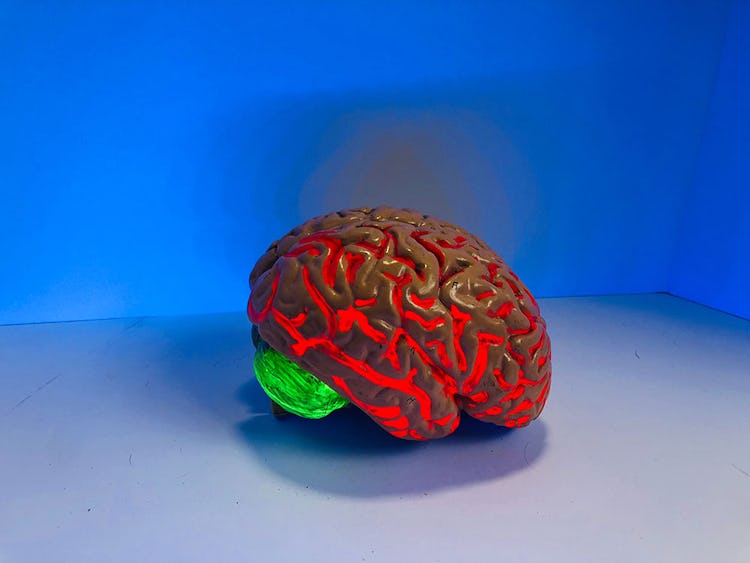People can’t seem to agree on much these days, from what to watch on Netflix to the success of Donald Trump’s presidency, but there’s one thing nearly everyone has in common: fatigue. We’re all tired, mentally as well as physically, and it’s taking its toll on our work. In 2017, a Dutch study found that 16% of company employees aged 15–75 experienced work-related mental fatigue several times per month, and people between 25 and 34 reported the most incidents. Thirty percent of employees said they felt drained at the end of a working day, while 20% complained of feeling that way in the morning when they started work.
If you want to build a successful career, get through school, or run a business, you probably won’t be able to limit mentally-draining tasks or escape making tough decisions, but you can take steps to keep your mind as focused and sharp as possible in spite of the challenges it faces.
How Can I Improve My Mental Acuity?

According to Dr. Jim Afremow, a mindset coach to Olympians, co-creator of the Champion’s Mind app, and former sports psychologist for pro sports teams such as the San Francisco Giants, the route to better focus, concentration, and understanding is recognizing the interplay between what’s going on around you and what’s happening inside your brain.
“Your mental state is dependent on both internal and external factors,” Afremow says. Here’s an example: “In the 90s, it was so hard to get a reservation at a famous restaurant in New York that [the restaurant] started getting a lot of complaints. So they had psychologists come in to find ways to get people in and out faster. They found that the two biggest difference makers were installing brighter lights and playing faster music, which shows how our external environment subconsciously shapes our mental state.”
The trouble is, says Afremow, “when we allow outside factors like 24/7 email, fast-paced work environments, and constant stimuli to speed us up too much, our performance suffers. That’s when we have to work on our inner [mental] game to slow things back down. Conversely, when we’re feeling sluggish, we need a toolkit of techniques that can energize us so we can perform well even when conditions aren’t ideal.”
Certain foods and supplements, along with daily practices such as meditation, “brain breaks,” and better sleep habits can all alter your mental state significantly, allowing you to speed up or slow down as needed to find the level of mental sharpness you require to be more focused and productive.
Can Natural Ingredients Really Affect My Mental Sharpness?

Everyone knows that caffeine/coffee can help with alertness and focus, but there’s another natural compound that, when combined with caffeine, may be even more effective for supporting a sharper mental state.
L-theanine is an amino acid found in green and black tea, and a trial published in Pharmacology, Biochemistry, and Behavior concluded that it helps lower the body’s stress response to stressful cognitive tasks. In other words, it may be able to help chill you out when you’re working on something frustrating. This calming effect could help to balance caffeine’s stimulant properties.
A study in Biological Psychology looked at the effects of caffeine and L-theanine in isolation and in combination, discovering that the two compounds together boosted cognitive speed, memory, and alertness better than when either nutrient was taken alone. Another study in Nutritional Neuroscience noted that while caffeine by itself boosts alertness, when teamed with L-theanine, it helped promote speed and accuracy on attention-switching tasks and reduced susceptibility to distraction.
Finally, British researchers found that L-theanine may help attenuate the spikes in blood pressure that are associated with caffeine use. This doesn’t necessarily mean it can counter the jittery and restless feelings that often accompany caffeine, but L-theanine seems to help you harness caffeine’s stimulatory effects, leaving you feeling alert but not overly revved up.
L-theanine is available as a supplement, but if you want to keep it simple and stick to coffee, at least get the dosing right, which can minimize the risk of caffeine’s side effects. “The sweet spot for caffeine appears to be between two and three milligrams per kilogram of bodyweight a day,” says Dr. Marc Bubbs, ND, CISSN, performance nutritionist for the Canadian men’s basketball team and author of the book Peak. So, if you weigh 180 pounds, you should aim for 160–245mg of caffeine—about one-and-a-half to three cups of coffee. “This is a level that provides most of the benefits while limiting the drawbacks of excessive caffeine intake,” says Bubbs, “like restlessness, anxiety, and inability to focus.”
Another natural ingredient worth experimenting with is Huperzia serrata (club moss). It’s been shown to help people with cognitive deficits, potentially by way of regulating oxidative stress and supporting nerve growth factors and receptors. It also acts to help promote acetylcholine concentrations, allowing for neuron communication. Lastly, lemon balm shows promise as a brain booster. British researchers writing in Neuropsychopharmacology noted its ability to promote both calmness and memory.
Tips for Achieving Mental Clarity
Here are four simple ways to boost your mental state fast.
1. Follow a Low-Carb Diet

Lowering your carb intake has been shown many times over to help people lose weight and reclaim their health, but one of the first noticeable benefits is improved thinking and concentration. This is because low-carb eating helps you avoid blood sugar spikes that rob your energy and fog your brain. Taken a step further, a low-carb diet becomes a ketogenic diet, where the lack of carbohydrate intake causes your body to run on ketones (compounds made from fat) for fuel.
A team of psychiatrists and neuroscientists from the University of Cincinnati divided adults with mild cognitive impairment into two groups. The one that followed a low-carb diet for six weeks showed improvements in verbal memory performance.
As Shelly Fan reported in Scientific American, a ketogenic diet may benefit the brain by inhibiting stress on neurons, increasing the number of mitochondria (energy-producing structures in brain cells), and regulating neurotransmitters to ensure a balance between excitation and inhibition.
“One of the biggest ’rocks’ for achieving and sustaining a high level of mental acuity is optimal blood glucose control,” Bubbs says. “With half the US population struggling with pre-diabetes or diabetes, it’s perhaps not surprising that mental performance seems to be on the decline. Chronically high blood glucose levels wreak havoc on the brain, entangling neurons and increasing your risk of dementia and depression. Reducing carbohydrate intake can be an effective strategy for improving glucose control, especially in those with pre-diabetes or diabetes, as a reduction in carbs significantly reduces your post-prandial glucose response. So, if you find yourself falling asleep at your desk after lunch, reducing your carb intake can be a great tool for supercharging your brain game.”
For specific guidelines on following a low-carb or ketogenic diet, see our free e-book HERE.
2. Get More High-Quality Sleep
At the risk of sounding too harsh, lack of sleep is making you stupid. One of the nation’s leading sleep researchers, William Killgore from Harvard Medical School, wrote in Progress in Brain Research that sleep deprivation not only slows response speed and compromises alertness, attention, and vigilance, but also affects “more creative, divergent and innovative aspects of cognition.” Said another way, if you don’t sleep well, your brain just won’t work right. And no matter how many extra shots you get your favorite barista to put in your morning joe, they can’t overcome the detrimental impact of a bad night’s sleep.
“Even a single night of bad sleep reduces your inhibitory control, making you more likely to react emotionally to conflicts and engage in risk-taking behavior,” Bubbs says. “In fact, even after you catch up on your sleep, there’s a major lag time before your full cognitive performance is restored. If you’re serious about your mental performance, prioritize increasing total sleep time and quality above all else.”
So how can you start sleeping better? Get all the electronics out of your bedroom, keep it dark with blackout shades and cool with air conditioning, a fan, or a chiliPAD, and trade your tablet or eReader for a good ol’ fashioned paper book to help you wind down before bed. You might also want to consider taking a supplement that contains magnesium, which may help you avoid delayed sleep onset and early wakefulness, as well as improve sleep efficiency, according to a trial in the Journal of Research in Medical Sciences. Get more sleep tips HERE.

3. Take Brain Breaks
If you remember the restaurant example from above, playing up-tempo music and sitting in bright lighting helps you move faster. As we showed in our report on forest bathing, taking a leisurely stroll outside can help you relax significantly. In both cases, the environment you surround yourself with creates changes in your brain.
“If you’re in a mental slump—which hits a lot of people mid-afternoon—then step away from your desk and take a quick walk outside,” says Afremow. “Or, if you’ve got a meeting coming up, just take a stroll around the building and have a chat with a colleague. The change of scene will give you a mental lift. Don’t think of it as time wasted, but rather an investment that will provide greater clarity and focus. The more consistent you are with any mindset practice, the bigger the benefits you’ll experience.”
Findings published in Mental Health and Physical Activity noted that just 12 minutes of activity helped promote mental performance in 10 year-old kids.
4. Schedule Meditation
While walking in nature can be a form of meditation, the value of sitting quietly with your eyes closed can’t be overstated. A 2018 study that spanned seven years concluded that meditation practice can help promote improvements in attention span, as well as prevent age-related mental decline.
“If you only have a few minutes,” says Afremow, “then fire up a guided meditation on an app like Champion’s Mind, or do a little single-point meditating by focusing on your breath. Picture yourself inhaling relaxation and exhaling stress. You could also do color breathing, in which you picture yourself inhaling a calming blue and exhaling a warning color like red.” For a step-by-step guide to how to meditate effectively, go HERE.
A group of researchers led by Mark Krasnow, a professor of biochemistry at Stanford University, found that calm breathing impacts a group of nerves that are directly tied into the arousal centers in the brain. The more control you have over your breath, the more you have over your mind. One journal found that yoga breathing techniques improved performance on mental testing.
Can Blue Light Help Me Focus?

Blue light is a color in the light spectrum that travels at short wavelengths. It’s produced by the sun, but also artificial lights, and scientists believe that exposure to it can help us focus and learn. A study published in the Journal of Neural Transmission concluded that, “a significant increase in alertness and speed of information processing could be achieved by blue light.” Furthermore, a team from the University of Arizona College of Medicine’s psychiatry department determined that subjects who were exposed to blue light for 30 minutes after a learning exercise improved memory retention compared to the placebo group.
According to Bubbs, one of the best ways to get exposure to blue light is to simply go outdoors. “Getting outside is hugely important for cognition and mental health, particularly during fall and winter months. If you’re bold enough to tackle the elements with a morning walk to work or to your favorite coffee shop, your brain will be exposed to over 100,000 LUX of light intensity, even on cloudy days, which will kickstart circadian rhythms and cognition.” A brightly-lit office, by comparison, puts out only a paltry 20,000 LUX. “Get outside to burn off the brain fog and clear your mind before work, or add outdoor morning workouts to further increase the benefits.”
However, there can always be too much of a good thing. Certain biohackers will warn you that blue light can mess with your sleep, as it suppresses the release of melatonin. It can delay the onset and reduce the quality and duration of sleep. For these reasons, it’s a good idea to wear glasses that block blue light when you’re watching TV or using electronics at night. Also, cut off your exposure to as much artificial light as you can at least two hours before going to bed (dim the overhead lights, turn off the TV, etc.). But don’t think you have to live in a cave just to be able to sleep at night.
For more tips on using blue light to your advantage—and avoiding it when it’s disadvantageous—pick up Onnit founder Aubrey Marcus’ book, Own The Day



